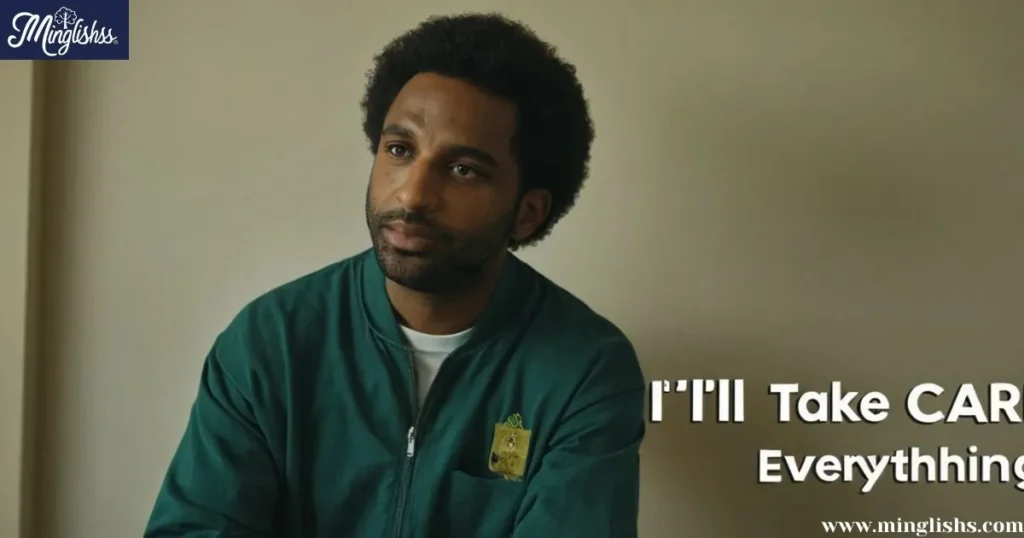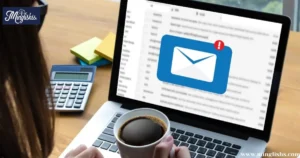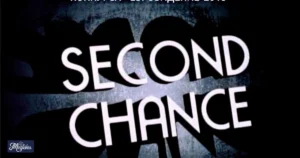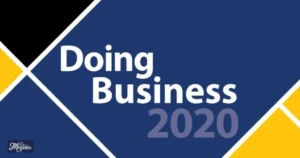Here’s your ultimate guide to freshen up your replies and sound more engaging in everyday conversations.”
When someone asks us to take action, a simple “Will do” is often the quickest response. While it’s short and to the point, repeating the same phrase can sound a bit dull and predictable. Expanding your vocabulary can help you come across as more engaged, confident, and creative in your responses. Whether you’re in the workplace, replying to a friend, or handling a customer inquiry, having a range of options to express agreement or acknowledgment can make a stronger impression.
This guide offers 35 alternatives to “Will do” that can make your responses feel more personal, intentional, and polished. From formal expressions to more relaxed phrases, these options can help you adjust your response based on the situation and the person you’re talking to. Let’s explore different ways to express your readiness to act with clarity and charm.
So, if you’re looking to add variety and professionalism to your conversations, or simply want to sound more friendly and relatable, read on. In this blog, we’ll break down different scenarios, explain each alternative, and provide extra tips to make sure you can choose the perfect response for any situation.
1. “Absolutely!”
Scenario: A manager asks if you can complete a task by the end of the day.
Explanation: Saying “Absolutely!” conveys enthusiasm and a strong commitment to the task. It’s a positive way to show that you’re fully on board and ready to get the work done.

Additional Tip: Use this phrase sparingly in professional settings so it maintains its impact for tasks that truly require dedication.
2. “Got it!”
Scenario: A friend texts you a reminder about the time to meet tomorrow.
Explanation: “Got it!” is a simple yet friendly acknowledgment. It’s quick and informal, making it perfect for casual conversations.
Additional Tip: When talking with a boss or supervisor, choose a more formal option to ensure clarity and respect.
3. “Consider it done!”
Scenario: A colleague asks for your help on a project.
Explanation: “Consider it done!” gives off a confident tone and tells the other person that you’re already on it. It can be very reassuring, especially when someone is depending on you.
Additional Tip: This is best for tasks you’re fully prepared to tackle immediately; avoid using it if there’s a chance you might not complete the request promptly.
4. “On it now!”
Scenario: Your boss sends a quick email asking for a minor update.
Explanation: “On it now!” is brief and implies immediate action. It shows that you’re responding promptly and taking initiative.
Additional Tip: This phrase works best for quick tasks. For bigger projects, mention your estimated time to complete it.
5. “Right away!”
Scenario: A customer requests assistance at work.
Explanation: “Right away!” signals urgency and willingness to meet their needs immediately. It shows that their request is a priority.
Additional Tip: This phrase is great in customer service roles, but can also be used in professional settings to show attentiveness.
6. “I’ll make it happen.”
Scenario: A team leader asks you to manage a part of a project.
Explanation: “I’ll make it happen” adds a bit of confidence to your response. It shows commitment to completing the request with determination.
Additional Tip: Use this for tasks that may be challenging, as it highlights that you’re up to the task.
7. “You got it!”
Scenario: A friend asks you to bring something for the gathering.
Explanation: “You got it!” is a friendly and reassuring reply, ideal for informal settings. It implies a casual readiness to help out.
Additional Tip: It’s best to use this in a friendly setting; it may seem too casual in formal environments.
8. “Happy to help!”
Scenario: A colleague asks if you can cover for them while they’re away.
Explanation: “Happy to help!” expresses a positive willingness, showing you’re not only able but also pleased to assist.
Additional Tip: This phrase works well in both professional and informal settings, as it’s polite and approachable.
9. “Count on me!”
Scenario: Your sibling asks you to look after their pet over the weekend.
Explanation: “Count on me!” is a reassuring response, indicating reliability. It’s supportive and makes the other person feel at ease.
Additional Tip: Use this phrase for situations where reliability is key. It implies that you won’t let them down.
10. “No problem at all.”
Scenario: A friend asks if you can pick something up for them.
Explanation: “No problem at all” is a casual way to say you’re okay with the request. It’s friendly and laid-back, making it ideal for informal settings.

Additional Tip: In professional contexts, consider using “I’d be happy to assist” for a more formal tone.
11. “I’ll handle it!”
Scenario: Your boss asks if you can take charge of an event detail.
Explanation: “I’ll handle it” shows confidence and takes ownership. It reassures the person asking that you’re prepared to take responsibility.
Additional Tip: This is especially useful in team settings where taking the lead on tasks is appreciated.
12. “Understood!”
Scenario: A supervisor provides specific instructions.
Explanation: “Understood!” indicates that you fully comprehend the instructions and are ready to proceed without further clarification.
Additional Tip: This works well in structured, formal settings where it’s important to communicate clarity.
13. “Leave it to me!”
Scenario: A friend asks for your help with a creative project.
Explanation: “Leave it to me!” adds a touch of confidence and excitement, showing you’re more than ready to tackle the request.
Additional Tip: Perfect for times when you feel especially skilled or eager to help with a task.
Other Ways to Say “Passive-Aggressive”
14. “You bet!”
Scenario: Someone asks if you’re able to attend an event they’re planning.
Explanation: “You bet!” is an informal, enthusiastic way to show willingness. It’s friendly and welcoming, ideal for casual interactions.
Additional Tip: This may sound too casual in professional emails, so reserve it for friends or close colleagues.
15. “I’ll take care of it.”
Scenario: A manager assigns you a task.
Explanation: “I’ll take care of it” conveys a sense of duty. It tells the person you’re ready to manage the task responsibly.

Additional Tip: Use this when you’re confident about completing the task thoroughly.
16. “I’m on it!”
Scenario: A colleague asks if you can help with a time-sensitive project.
Explanation: “I’m on it!” indicates you’re already starting the task or will begin immediately. It suggests urgency and attentiveness.
Additional Tip: Perfect for fast-paced environments or when someone needs assurance of immediate action.
17. “Will get it done.”
Scenario: Your boss gives you a task to complete by the end of the day.
Explanation: “Will get it done” is a straightforward way to confirm you’re committed to finishing the task within the specified time.
Additional Tip: This phrase is best for tasks with a specific deadline, as it implies you’re aware of the time frame.
18. “It’s as good as done.”
Scenario: A friend asks you to bring an item to a gathering.
Explanation: “It’s as good as done” is a confident way of telling the person that you’re almost finished or fully committed to completing the request.
Additional Tip: Use this phrase when you’re very confident and ready to go. It adds a touch of humor to informal settings.
19. “You’ll have it shortly.”
Scenario: A client requests a report on project progress.
Explanation: “You’ll have it shortly” conveys that you’re working on the task and it will be completed soon. It’s polite and professional.
Additional Tip: This works well in professional settings to show attentiveness without giving an exact time, which can be helpful if you need a bit more flexibility.
20. “Right on it!”
Scenario: Your supervisor asks for a minor update.
Explanation: “Right on it!” is another brief but effective way to show that you’re tackling the request immediately.
Additional Tip: This phrase is great for quick, simple tasks that don’t require a detailed response.
21. “Leave this to me.”
Scenario: A teammate needs help managing part of a project.
Explanation: “Leave this to me” shows that you’re willing to take full responsibility. It’s an assuring phrase that indicates readiness to handle the task independently.
Additional Tip: Best used when you’re capable and ready to work on the task solo, without further assistance.
22. “That works for me!”
Scenario: A friend suggests a meeting time.
Explanation: “That works for me!” is a casual, agreeable response. It’s a nice way to show flexibility and ease in informal settings.

Additional Tip: Suitable for informal conversations where you’re okay with the arrangement or plan.
23. “All set!”
Scenario: Your coworker asks if the report is prepared for the meeting.
Explanation: “All set!” indicates the task is complete. It’s short, to the point, and reassures the person asking.
Additional Tip: Use this phrase when you’ve finished a task and are fully prepared for the next step.
24. “I’m good with that!”
Scenario: A friend asks if you’re okay with their plan for the weekend.
Explanation: “I’m good with that!” conveys agreement in an informal way. It’s friendly and shows you’re flexible and easygoing.
Additional Tip: Use this in informal settings or with close colleagues, as it may be too relaxed for professional settings.
25. “For sure!”
Scenario: A friend asks if you’re coming to a gathering.
Explanation: “For sure!” is a casual yet confident way of saying “Yes.” It’s friendly and easy-going.
Additional Tip: Best for casual contexts with friends or close colleagues.
26. “I’ll get to it.”
Scenario: Your manager asks you to add a task to your list.
Explanation: “I’ll get to it” lets the other person know you’re aware of the task and will work on it as soon as possible.
Additional Tip: Use this phrase when the task is on your list but isn’t urgent, giving a polite acknowledgment.
27. “I’ve got it covered.”
Scenario: A colleague asks if you need help on a project.
Explanation: “I’ve got it covered” is a reassuring way to show independence. It tells the other person that you’re handling things.
Additional Tip: Great for showing confidence and responsibility in tasks that you can manage alone.
28. “I’ll take care of everything.”
Scenario: A friend asks for help organizing an event.
Explanation: “I’ll take care of everything” indicates you’re taking on full responsibility. It’s reassuring and supportive.

Additional Tip: Best used when you’re genuinely willing to manage all aspects of a task or project.
29. “Leave it in my hands.”
Scenario: Your supervisor gives you a task to manage.
Explanation: “Leave it in my hands” signals confidence and willingness to take on the task independently.
Additional Tip: This phrase is great when you’re fully capable and confident about handling a responsibility.
30. “I’m on top of it.”
Scenario: A coworker asks if you’re keeping up with project tasks.
Explanation: “I’m on top of it” is a reassuring response, showing that you’re actively managing everything that needs to be done.
Additional Tip: This works well for situations where you’re balancing multiple tasks and want to reassure others you’re staying organized.
31. “Sure thing!”
Scenario: A friend asks if you’ll bring a snack to the picnic.
Explanation: “Sure thing!” is a lighthearted, friendly way of saying “Will do.” It’s casual and relaxed, ideal for informal settings.
Additional Tip: Use this phrase in casual settings with friends or family. It may sound too informal in professional conversations.
32. “Consider it done already.”
Scenario: Your boss asks you to complete an important task.
Explanation: “Consider it done already” is a confident response, implying you’re fully committed to the task and already in motion.
Additional Tip: Use this phrase sparingly so it retains its impact for significant requests.
33. “No sweat!”
Scenario: A friend asks for a small favor.
Explanation: “No sweat!” is a fun, informal way to confirm you’re up for the task. It shows ease and confidence in handling the request.
Additional Tip: Use this only in very informal situations; it’s too casual for work or formal environments.
34. “I’m here for you.”
Scenario: A friend or family member is going through a tough time and asks for support.
Explanation: “I’m here for you” is a warm and supportive phrase that expresses commitment and compassion beyond a simple “Will do.”
Additional Tip: This phrase works well in personal settings where emotional support is needed.
35. “Of course!”
Scenario: A family member asks if you can help with a household chore.
Explanation: “Of course!” is a polite, agreeable response that shows warmth and willingness. It’s friendly and affirming.

Additional Tip: This phrase is versatile; it can be used in both informal and semi-formal situations, adding a touch of kindness to your reply.
Pros and Cons of Using Alternatives to “Will Do”
Pros
- Variety: These alternatives make your responses sound fresh and well-thought-out.
- Professionalism: Some phrases add a more polished touch, ideal for workplace communication.
- Expressiveness: Different phrases can add warmth, enthusiasm, or confidence to your replies.
Cons
- Context Sensitivity: Choosing an inappropriate phrase can come across as too informal or overly enthusiastic for certain settings.
- Overuse: Relying too heavily on any single phrase can make it lose its impact.
- Risk of Misinterpretation: Some phrases might be misunderstood, depending on the context and the person you’re speaking to.
Conclusion
Incorporating a range of responses instead of the standard “Will do” can help elevate your communication, adding professionalism, warmth, or enthusiasm where needed. Each phrase on this list offers a unique way to respond, whether you’re talking with colleagues, friends, or family. By choosing the right expression for the right context, you’ll create a positive impression and show your commitment in every interaction.
Answers to Key Question “Will do”
1. What are some formal alternatives to “Will do”?
For formal situations, you can use phrases like “I will handle it,” “I will take care of it,” or “Consider it done.” These phrases convey professionalism and reliability while maintaining the level of respect needed in work-related conversations.
2. Can I use these alternatives in casual conversations?
Yes, many of the alternatives, such as “No problem,” “Sure thing,” and “You got it,” are perfect for casual, friendly exchanges. They are more relaxed and can help create a friendly tone in informal settings.
3. How do I know which alternative to use?
Choose the alternative based on the formality of the situation and the relationship you have with the person. For example, “I’m on it” is great for informal situations, while “I’ll take care of it” works better in professional settings.
4. Are these phrases appropriate for work emails?
Some alternatives like “I’ll take care of it” and “Leave it to me” are ideal for work emails, especially when replying to requests. However, casual phrases like “No sweat!” may not be suitable for formal email communication.
5. Can overusing these alternatives sound insincere?
Yes, overusing phrases like “I’ve got it covered” or “Consider it done” can make you sound less genuine. It’s important to mix up your responses and use them thoughtfully based on the context to maintain sincerity.

Hi, I’m Zadie Smith: I’m dedicated to helping others master English through practical tips. I enjoy making complex ideas simple and accessible for everyone.










